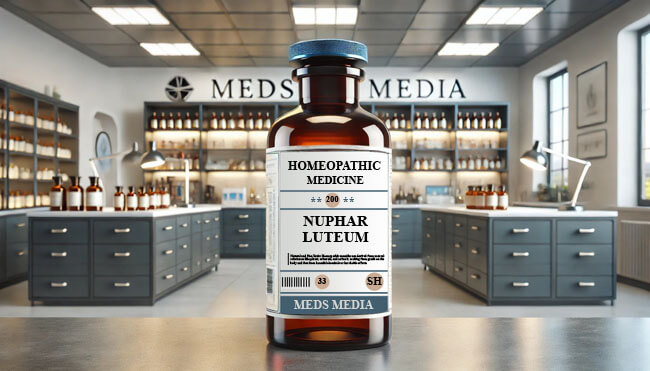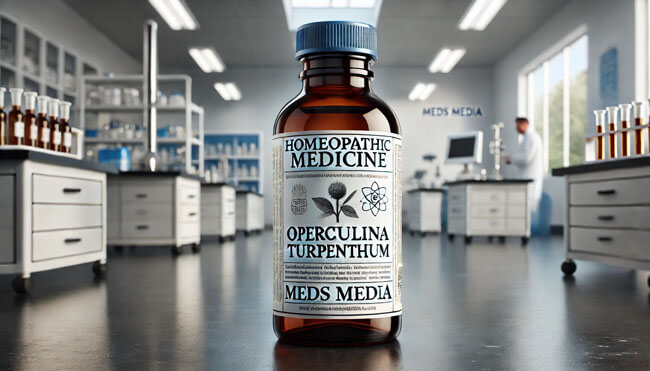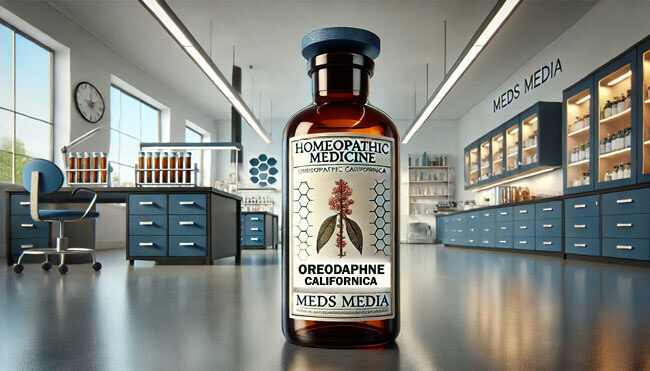PHYTOLACCA DECANDRA ( PHYT ) Homeopathic Uses & Treatment Insights
Phytolacca Decandra, commonly known as pokeweed, is a versatile and powerful remedy in homeopathic medicine. Known for its profound effects on glandular swellings, fibrous tissues, and osseous structures, this remedy addresses a broad range of conditions. Phytolacca is especially useful for inflammations, glandular issues, rheumatic pains, and specific systemic concerns, making it a vital tool in a homeopath’s kit.
In this guide, we will explore the remedy in-depth, focusing on the symptoms it addresses, its key homeopathic insights, and the many benefits it offers.
Symptoms Addressed by Phytolacca Decandra
Mild Symptoms
- Soreness and aching: General muscular aches and tenderness are common.
- Dry, itchy skin: This remedy can help in the early stages of skin conditions.
- Mild colds and throat irritations: Ideal for the onset of cold symptoms, including mild sore throats and nasal congestion.
- Teething pains in children: Useful in relieving discomfort associated with delayed dentition.
Severe Symptoms
- Severe throat infections: Especially indicated in cases of quinsy, diphtheria, and inflamed tonsils.
- Mastitis and breast conditions: Highly effective in breast abscesses, tumors, and mastitis.
- Chronic rheumatism: Phytolacca works well in cases of syphilitic and long-term rheumatic conditions.
- Scaly, pustular skin eruptions: Effective in treating severe skin conditions, including syphilitic rashes and boils.
Materia Medica Insights
Phytolacca Decandra primarily targets glandular tissues, fibrous structures, and bone-related issues. Let’s take a deeper look at the remedy and the conditions it addresses, organized by systems of the body:
Mind
Symptoms:
- Loss of personal delicacy: Patients show a disregard for personal appearance and surroundings.
- Indifference to life: Apathy and detachment from life are key mental symptoms.
Homeopathic Insight:
Phytolacca’s mental picture often mirrors its physical picture—indifference, apathy, and emotional exhaustion follow physical prostration. It is especially indicated in individuals who exhibit a lack of interest in their well-being, reflecting physical states of depletion and chronic illness.
Head
Symptoms:
- Vertigo: Dizziness occurs upon rising, often accompanied by headaches.
- Soreness of the brain: A feeling of soreness or pressure in the brain, especially in the frontal region.
- Weather-sensitive headaches: Pain in the scalp and head triggered by rainy or damp weather.
Homeopathic Insight:
Phytolacca is ideal for patients whose headaches and scalp pain worsen with changes in weather, particularly before or during rainfall. Its action on the nervous system provides relief for vertigo and brain fog.
Eyes
Symptoms:
- Smarting sensation: Eyes feel irritated, as if filled with sand.
- Hot tarsal edges: The edges of the eyelids feel hot and inflamed.
- Abundant lachrymation: Hot, excessive tear production.
Homeopathic Insight:
Phytolacca addresses eye discomfort, particularly when irritation is accompanied by a burning sensation. It is useful in cases of conjunctivitis and other inflammatory eye conditions.
Nose
Symptoms:
- Coryza: Mucus flows from one nostril or from the posterior nares, often accompanied by nasal congestion.
Homeopathic Insight:
This remedy is effective in relieving the symptoms of acute colds and nasal congestion, particularly when mucus is profuse from one side of the nose.
Mouth
Symptoms:
- Teething in children: Children have an irresistible urge to bite their teeth together.
- Firmly set jaws: Jaws are clenched, and the lower lip may be drawn down.
- Mapped tongue: The tongue is indented, fissured, and marked by a yellow patch down the center.
- Excessive salivation: Stringy, sticky saliva accumulates in the mouth.
Homeopathic Insight:
Phytolacca is particularly helpful for teething children, as it soothes irritability and discomfort. Additionally, its action on the mouth and tongue makes it a go-to remedy for sore and ulcerated oral tissues.
Throat
Symptoms:
- Severe sore throat: The throat appears dark red or bluish, with significant pain at the root of the tongue.
- Tonsillar swelling: Particularly affects the right tonsil, with shooting pains into the ears upon swallowing.
- Pseudo-membranous exudation: Grayish-white mucus forms in the throat, making swallowing difficult.
Homeopathic Insight:
Phytolacca is one of the primary remedies for sore throats, especially in cases of quinsy, diphtheria, or tonsillitis. Its anti-inflammatory properties help reduce swelling and pain, offering relief from painful swallowing and congestion.
Abdomen
Symptoms:
- Right-sided pain: Soreness in the right hypochondrium, with burning, colicky pains.
- Bruised feeling: A sensation of being bruised throughout the abdomen, particularly in the epigastric region.
- Constipation: Commonly seen in elderly patients or those with weak hearts.
Homeopathic Insight:
Phytolacca addresses digestive and abdominal complaints, particularly those associated with pain in the right side of the body. It is highly effective in cases where constipation occurs alongside muscle soreness or weakness.
Urinary System
Symptoms:
- Scanty or suppressed urine: Pain may be felt in the kidney region, sometimes associated with nephritis.
Homeopathic Insight:
Phytolacca supports urinary health, particularly when there is a marked reduction in urinary output. It can help stimulate kidney function and alleviate pain associated with urinary conditions.
Female Reproductive System
Symptoms:
- Mastitis: Breasts become hard, sensitive, and painful, often with abscess formation.
- Breast tumors: Phytolacca is helpful for treating hard, painful breast tumors with enlarged axillary glands.
- Breastfeeding pain: Severe pain radiating from the nipple throughout the body when nursing.
Homeopathic Insight:
Phytolacca is a renowned remedy for breast conditions, particularly mastitis and abscesses. It supports the healing of breast tissue, reduces inflammation, and helps manage pain, especially during breastfeeding.
Male Reproductive System
Symptoms:
- Testicular pain: Painful induration of the testicles, often shooting along the perineum to the penis.
Homeopathic Insight:
Phytolacca is highly effective for treating testicular pain and swelling. It helps reduce inflammation and soothes the discomfort associated with reproductive system issues.
Heart
Symptoms:
- Palpitations: A sensation as if the heart leaps into the throat.
- Alternating pain: Pain in the cardiac region alternating with discomfort in the right arm.
Homeopathic Insight:
Phytolacca offers relief from cardiac irregularities and pain, especially when associated with nervous or rheumatic conditions.
Respiratory System
Symptoms:
- Aphonia: Loss of voice, often accompanied by a dry, hacking cough.
- Chest pain: Aching pains through the mid-sternum, especially with coughing.
Homeopathic Insight:
Phytolacca is beneficial in treating respiratory conditions, particularly those involving dry coughs, hoarseness, and pain in the chest.
Back
Symptoms:
- Lumbar pain: Aching pains in the lower back, radiating up and down the spine.
- Morning stiffness: Stiffness, especially upon waking or during damp weather.
Homeopathic Insight:
Phytolacca is particularly indicated for individuals suffering from rheumatic pain in the back and spine. It alleviates morning stiffness and provides relief from discomfort worsened by cold, damp conditions.
Extremities
Symptoms:
- Shooting pain in the right shoulder: Stiffness and inability to raise the arm.
- Electric-shock-like pains: Pains that move rapidly from one joint or muscle to another.
- Swollen feet and ankles: Puffiness in the feet, with aching in the legs.
Homeopathic Insight:
Phytolacca excels in addressing joint pain, particularly when the discomfort travels or shifts quickly. It is ideal for treating syphilitic sciatica and other rheumatic conditions in the limbs.
Fever
Symptoms:
- High fever: Alternating with chills and great prostration.
Homeopathic Insight:
Phytolacca helps regulate body temperature and reduce fever, particularly when weakness and exhaustion are prominent.
Skin
Symptoms:
- Papular and pustular lesions: The skin becomes dry, pale, and shrinks, with a disposition to boils.
- Syphilitic eruptions: Lesions and eruptions related to syphilis, with swelling and induration of glands.
Homeopathic Insight:
Phytolacca supports the treatment of various skin conditions, particularly those in the early stages. Its action is beneficial in treating syphilitic rashes, boils, and other inflammatory skin conditions.
Modalities
Worse:
- Sensitivity to electric changes, damp weather, and cold.
- Motion and nighttime exposure.
- Right-sided ailments.
Better:
- Warmth, dry weather, and rest.
Relationships
Compare With:
- Phytolacca Berry: For sore throats and obesity treatment.
- Bryonia: Rheumatic and glandular conditions.
- Rhus tox: For stiffness and joint pain.
- Mercurius: For glandular swelling and throat conditions.
Inimical:
- Mercurius: Avoid in patients taking Mercurius.
Antidotes:
- Milk and salt: Relieves some symptoms.
- Belladonna and Mezerium: Can counteract certain effects of Phytolacca.
Dosage and Application
Phytolacca Decandra is available in tincture form, as well as in third-potency dilutions. It can be used externally for conditions like mastitis, but internal use requires the guidance of a qualified homeopath.
Select Your Homeopathic Medicine Dose and Potency
Potency Selection Guide
Relationship of Remedies
Why our homeopathy guides are different
We break down classical homeopathic ideas, remedy personalities, and prescribing tips into clear explanations so students and patients can follow along without jargon.
This homeopathy site is for study and education only. For any health concern, always work with a qualified doctor or registered homeopathic practitioner.
Similar Posts You may also like

NITRO MURIATICUM ACIDUM HOMEOPATHIC MATERIA MEDICA | Uses, Symptoms & Benefits Guide

NITRI SPIRITUS DULCIS HOMEOPATHIC MATERIA MEDICA | Uses, Symptoms & Benefits Guide

NUPHAR LUTEUM HOMEOPATHIC MATERIA MEDICA | Uses, Symptoms & Benefits Guide

NUX MOSCHATA HOMEOPATHIC MATERIA MEDICA | Uses, Symptoms & Benefits Guide

NUX VOMICA HOMEOPATHIC MATERIA MEDICA | Uses, Symptoms & Benefits Guide

NYCTANTHES ARBOR TRISTIS HOMEOPATHIC MATERIA MEDICA | Uses, Symptoms & Benefits Guide

OCIMUM CANUM HOMEOPATHIC MATERIA MEDICA | Uses, Symptoms & Benefits Guide

OENANTHE CROCATA HOMEOPATHIC MATERIA MEDICA | Uses, Symptoms & Benefits Guide

OLEUM ANIMALE AETHEREUM: HOMEOPATHIC MATERIA MEDICA – Symptoms Guide

OLEUM JECORIS ASELLI: HOMEOPATHIC MATERIA MEDICA – Symptoms Guide

OLEUM SANTALI: HOMEOPATHIC MATERIA MEDICA – Symptoms Guide

OLEANDER: HOMEOPATHIC MATERIA MEDICA – Symptoms Guide

ONISCUS ASELLU: HOMEOPATHIC MATERIA MEDICA – Symptoms Guide

ONOSMODIUM VIRGINIANUM: HOMEOPATHIC MATERIA MEDICA – Symptoms Guide

OPIUM: HOMEOPATHIC MATERIA MEDICA – Symptoms Guide

OPERCULINA TURPENTHUM: HOMEOPATHIC MATERIA MEDICA – Symptoms Guide

OPUNTIA FICUS: HOMEOPATHIC MATERIA MEDICA – Symptoms Guide
